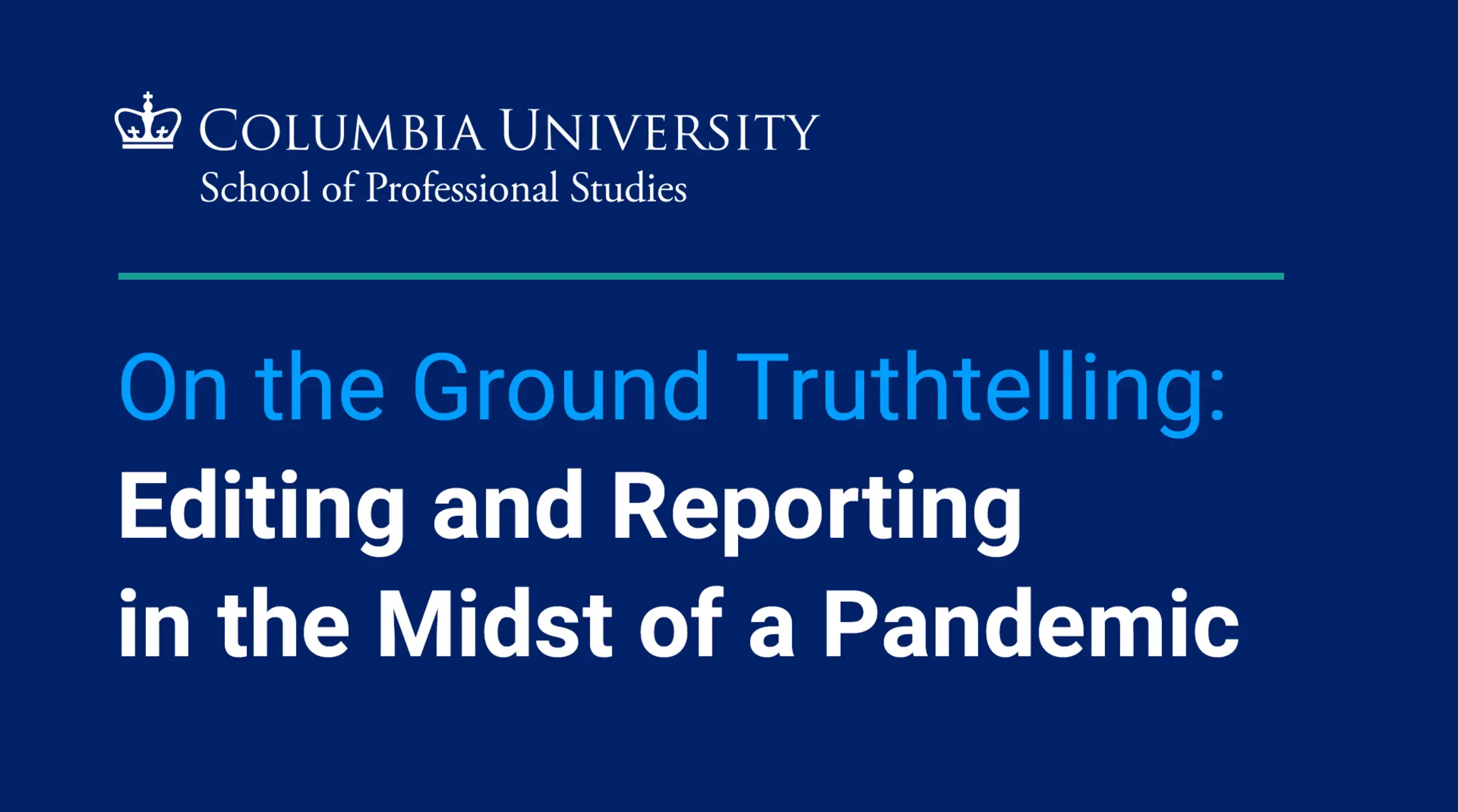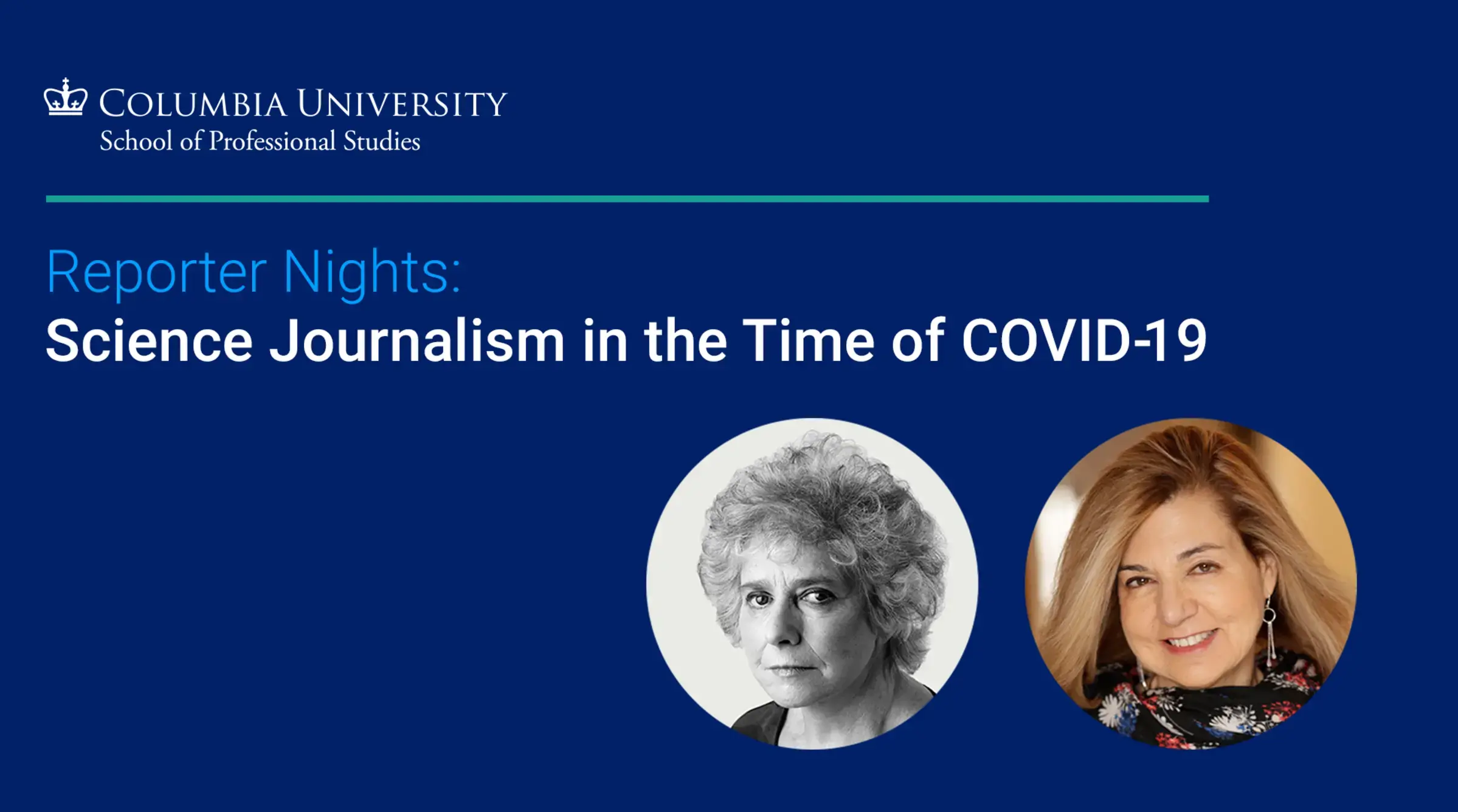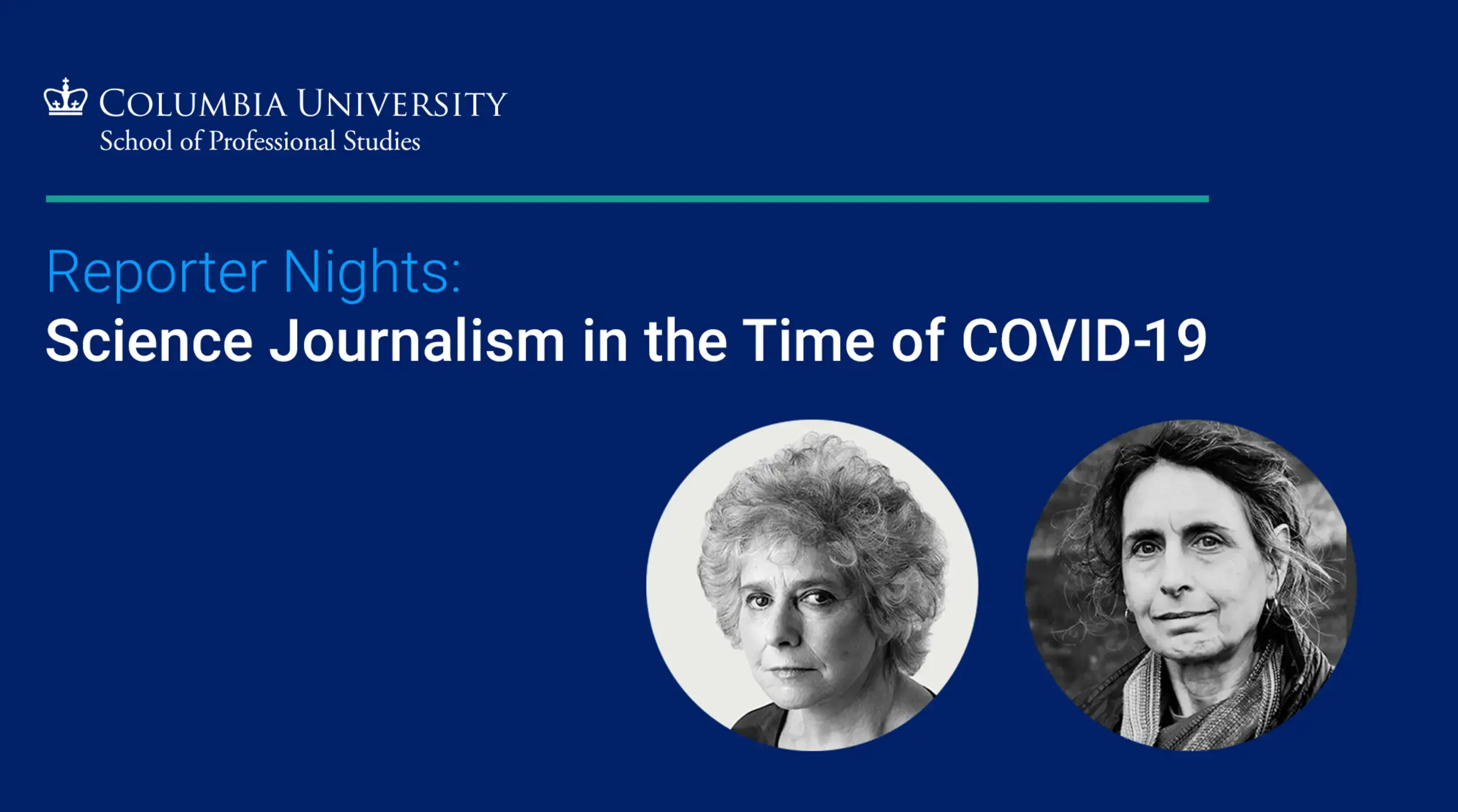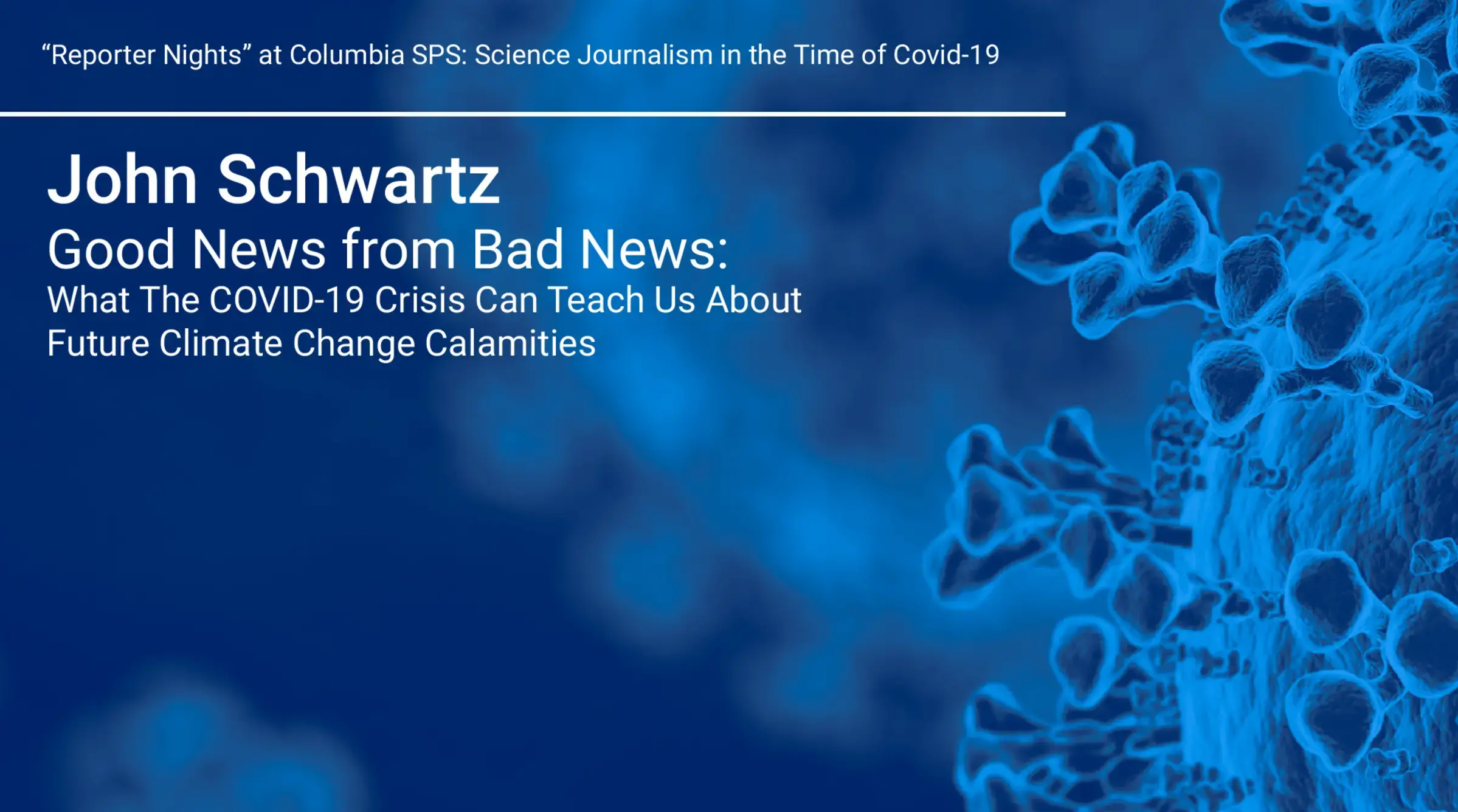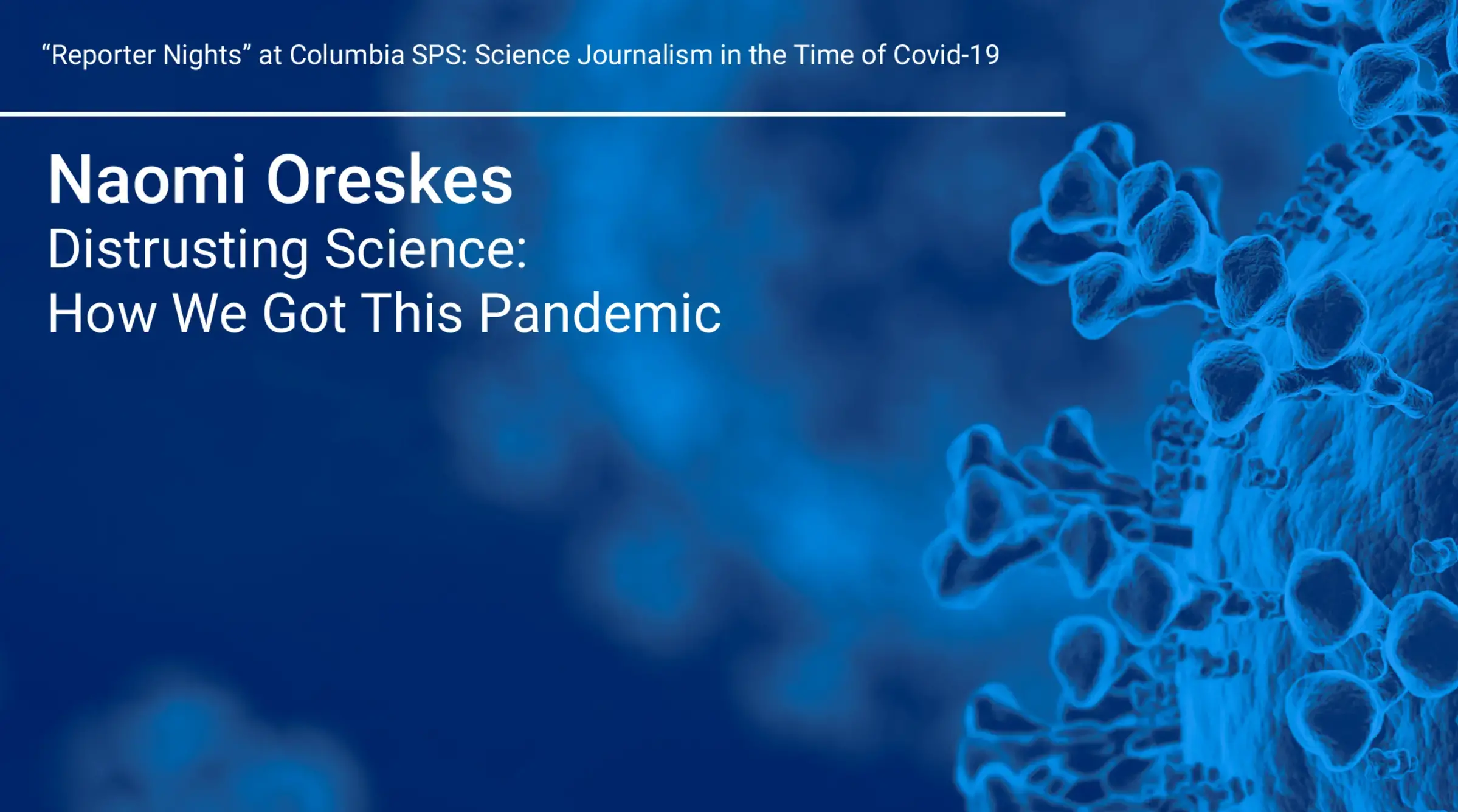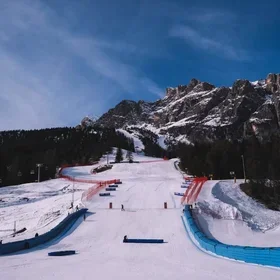Watch the country's top science historians and reporters in discussion with Claudia Dreifus, SPS Lecturer in Professional Studies and contributor to the Times Science section, for Reporter Nights at SPS: Science Journalism in the Time of COVID-19.
"On the Ground Truthtelling: Editing and Reporting in the Midst of a Pandemic"
Dreifus and students in her class interviewed a panel of top science editors and reporters on their career paths, as well as the highlights and challenges of their day-to-day work. Panelists included Co-Founder and Executive Editor of STAT Rick Berke, Co-Founder and Editor in Chief of The Open Notebook Siri Carpenter, Senior Multimedia Editor at Scientific American Jeffery DelViscio, Managing Editor at Inside Climate News Erica Goode, Vice News Producer Tony Lin, Deputy Editor at Quanta Magazine John Rennie, and Editor in Chief of Undark Magazine Tom Zeller.
"Pandemic Coverage in the International Media: The Good, the Bad, and the Ugly" with Margaret Sullivan
Margaret Sullivan, Media Columnist for The Washington Post, former Editor of The Buffalo News, and Public Editor at The New York Times from 2012 to 2016, joined Dreifus to analyze how the media has covered the biggest science story of the century. In what ways did journalists serve the public good in their pandemic coverage? Where did they fail? What are the lessons for the next pandemic?
"I Don’t Believe This: What Can the COVID-19 Crisis Teach Environmentalists About Communicating the Unimaginable?" with Elizabeth Kolbert
Elizabeth Kolbert, Pulitzer Prize-winning journalist, Staff Writer at The New Yorker, and the author of The Sixth Extinction, and Field Notes from a Catastrophe, spoke about the links between the current pandemic and the destruction of the natural world.
Kolbert, whose reports and books have tackled such difficult topics as mass extinctions of wildlife and the impact of global warming on cities, shared her thoughts on how writers can bring difficult subjects to an often disbelieving public. Are some stories too frightening or distant for readers to imagine or accept? To what degree did inadequate and inconsistent science reporting leave the world unprepared for the worst pandemic since 1918?
"Good News From Bad News: What The COVID-19 Crisis Can Teach Us About Future Climate Change Calamities" with John Schwartz
John Schwartz, a reporter on the climate desk at The New York Times, covers disasters, natural and otherwise. Mr. Schwartz spoke with Dreifus about how lessons learned in the COVID-19 pandemic could prove useful in mitigating the effects of climate change-related disasters.
The two explored the pandemic’s origins and policy options, issues in science communications highlighted by the crisis, and how lessons learned from the pandemic can be applied to climate change-related disasters.
"Distrusting Science: How We Got This Pandemic"
Over the last twenty years, Naomi Oreskes, a professor of the history of science at Harvard University, has been writing widely read books about the political consequences of distorting scientific knowledge.
Dr. Oreskes' best-seller, Merchants of Doubt, coauthored with Erik M. Conway showed how a group of prestigious researchers misled the public on the dangers of smoking to further an anti-regulation and anti-government political agenda. Her most recent work, Why Trust Science?, was written as a response to the growing impact of climate change deniers and anti-vaccine activists. Published by Princeton University Press before the COVID-19 pandemic took hold, Dr. Oreskes warned of the dangers of an increasing public distrust of science. How much of the current pandemic can be attributed to this distrust of the knowledge of experts? What can the scientific community do counter the false information spread by some political leaders and by some among the citizenry?
